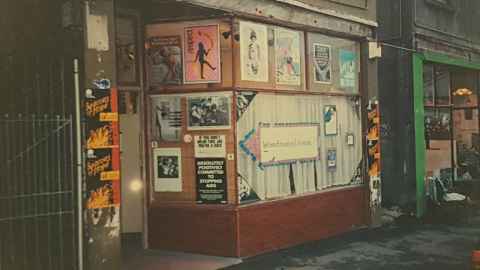Grants give fast start to research
8 November 2018
Four of our early career historians and archaeologists have received grants from the Marsden Fund to support their research into social life in New Zealand and Australia.

Their projects explore the lives of women sex workers in New Zealand, Māori social organisation and movement, women and pregnancy in New Zealand, and human mobility in late-Holocene Australia.
All four have received Fast Start grants of $300,000 towards their projects. Alongside these four Fast Start grants, Dr Aroha Harris received a $622,000 grant for her project with Dr Melissa Williams that will investigate how Māori have maintained their resolve and aspirations for whānau ora while negotiating with, pushing against, and pressing beyond the state's policies for Māori.
Head of Humanities, Associate Professor Malcolm Campbell said "This is a very exciting outcome. It's great to see important and innovative historical scholarship recognised in these Marsden results."
The successful historical projects have a strong focused on lived experiences: of Māori whānau who directly faced Māori welfare policies, women sex workers, and pregnant women. The archaeological projects both feature cutting-edge methodology for quantifying movement and mobility through stone artefacts.
I am pleased that a strong commitment to Vision Mātauranga unites the projects that have been selected for funding this year.
Dean of Arts, Professor Robert Greenberg said "Warmest congratulations to all recipients of Marsden Fund grants this year. I am especially delighted by the success of our early career researchers in securing Fast Start grants, and would like to thank the Marsden Fund for their support in nurturing these new voices in history and anthropology."
"This year was Dr Aroha Harris's first year back with us full-time after several years of working with the Waitangi Tribunal, and I look forward to learning the results of her project on Māori resolve and aspirations for whānau ora. We are working hard to embed Māori and Pacific worldviews and approaches in everything that we do here in the Faculty of Arts, and I am pleased that a strong commitment to Vision Mātauranga unites the projects that have been selected for funding this year."
Our Fast Start grant recipients
- Dr Cheryl Ware will use her grant to recover the lives of women sex workers in New Zealand from 1978–2008. Her ground-breaking study will use oral history and empirical research to explore the intimate experiences of women sex workers before and after New Zealand's pioneering decriminalisation of sex work with the Prostitution Reform Act (2003).
- Dr Charlotte Greenhalgh's project will explore women and pregnancy in twentieth-century New Zealand. She plans to put women's experiences at the centre of the history of pregnancy to ask and answer broader questions about gender, inequality and the changing possibilities of women's lives.
- Dr Rebecca Phillipps will look at past Māori social organisation and movement in the North Island of New Zealand. She will use new methods for quantifying movement among regions using stone artefacts to counter simplistic narratives about Indigenous pasts that downplay spatial and temporal variability.
- Dr Ben Davies will use stone artefact scatters to determine regional mobility in temperate southeastern Australia during the late Holocene. His project highlights the significance of stone artefact scatters as advocated by Indigenous Traditional Owners.